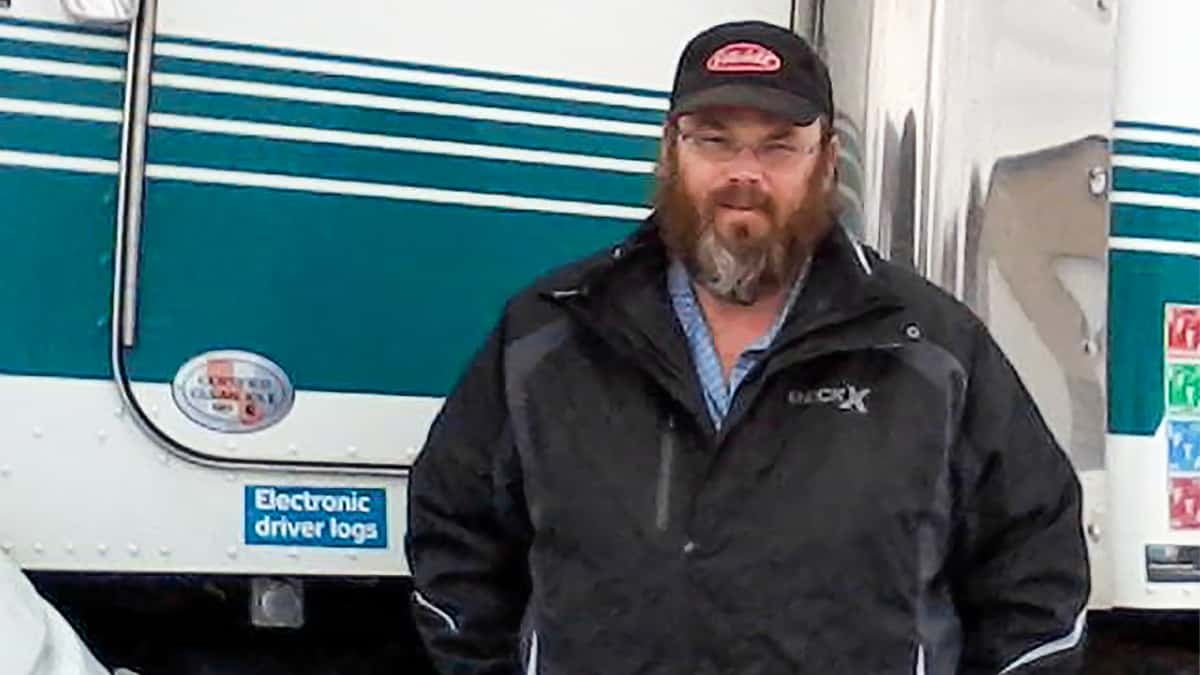When Canadian trucker Jean Pothier recently tried to schedule a battery of overdue blood tests, he was told to self-isolate for 14 days first over COVID-19 risks. It wasn’t an option for the cross-border lease operator, who pays about CA$3,000 a month for his truck alone on top of a mortgage for the Ontario home he shares with his wife.
“I can’t afford to take the time off,” said Pothier, who drives for TransX. “I’ll go bankrupt.”
Pothier’s story isn’t an anomaly, industry groups say. Canadian truckers — largely cross-border drivers in Ontario — are increasingly reporting doctors, dentists and other health care providers won’t see them unless they’ve self-isolated for two weeks.
“It’s wrong,” said Shelley Uvanile-Hesch, CEO of the Women’s Trucking Federation of Canada and a long-haul cross-border driver. “It’s gotten to the point where drivers are lying so they can get in.”
Most incidents involve cross-border drivers

The scope of the problem remains unclear. But industry groups say most of the incidents involve cross-border drivers who frequently travel to the United States, where the COVID-19 pandemic is far less controlled.
As essential workers, truckers haven’t been subject to Canada’s mandatory self-isolation when they enter the country from the U.S. For Pothier, Canadian truckers’ struggle to get timely medical care is upsetting.
“We’re risking our lives to keep people fed,” Pothier said. “That’s the thanks we get? It’s not right.”
Truckers aren’t alone. In July, the CBC reported that essential workers, including health workers, faced the same demand for 14 days of self-isolation.
Troubling to trucking industry groups, however, are reports that some doctors not only are refusing to see Canadian truckers who don’t self-isolate but are not providing an option for a virtual or phone appointment, or outside referral.
“It’s just objectionable,” said Steve Laskowski, president of the Ontario Trucking Association. “Here are essential workers being discriminated against because they’re essential workers.”
The association, which represents carriers in Ontario, began investigating the incidents in July.
Doctors should provide alternative if they can’t see patient, Ontario regulator says
Doctors and other health care providers have broad discretion on how they treat patients in Canada. Doctors, in particular, have embraced virtual and telehealth appointments.
A spokesperson for Ontario’s Ministry of Health told FreightWaves that any concerns about truckers’ access to health care should be directed to regulatory bodies that oversee providers.
Josh McLarnon, a spokesperson for the College of Physicians and Surgeons of Ontario, which represents medical doctors in the province, said while some physicians may have good cause to refuse to see some patients in person, they are expected to help ensure they get care.
“Our expectation is that if a patient can’t be seen, they should be offered virtual care as an alternative or provided an outside referral,” McLarnon said.
‘This could be cancer,’ trucker says
Pothier has no complaints about the hematologist who is treating him. He already had a phone consultation with her. The self-isolation requirement, according to Pothier, came from the testing facility.
But Pothier is worried about what might happen if he doesn’t get his blood tests soon. He’s been experiencing bouts of debilitating symptoms, including leg swelling. He was referred to a hematologist earlier this year after tests showed abnormal blood cell counts.
Pothier fears he may have leukemia.
“This could be cancer. The longer I wait, the worse it could get,” he said.
Click for more FreightWaves articles by Nate Tabak.
Trucker hauls message as essential as her freight
$6 million in marijuana seized at US-Canada border
COVID-19 diagnosis confirmed, trucker urges drivers to get tested

Florina
In a situation like this we only have two options: lying about our jobs or a strike where every truck driver and every essential worker denies to bring food or provide any service to anybody as a wake up call for people to realize you cannot single out those who keep you fed and safe. This would be a vicious circle. All the food and equipment and health are coming from those who cannot benefit from services which are less essential than the ones the essential workers provide.
Stephen Webster
They are right to make these truckers to wait 14 days or a negative test before going to certain places including dental work , hospital and nursing homes. Truck drivers staying with farm workers between trips has brought coronavoius into the farms migrate workers. All truck drivers need to have a plan at the border of what they will be doing and if they live with a person who works at a nursing home or hospital or house is condemned. The trucking company should be providing a hotel room as coronavoius.
Tom
We need to stop moving all this freight and then we will see how everyone feels about this. 1 or 2 weeks would do it.
Stephen Webster
The Ont O P P are telling truck drivers in Ontario Canada that must self isolate in in Huron Country Ontario. I do not know about other parts of Ontario. Sometimes told must stay in truck for 14 days this is not a good solution.